Race Record
At 2-years-old, in 4 runs
-
1st Prix de Tour en Bessin Deauville, 7f .1400m
-
2nd Prix la Rochette Gr.3 ParisLongchamp, 7f . 1400m
-
2nd Prix Charles Pichegru Dieppe, 7f . 1400m
-
3rd Prix Thomas Bryon Jockey Club de Turquie Gr.3 Saint Cloud, 7f . 1400m
At 3-years-old, 5 runs
-
1st Prix de l’Abbaye de longchamp Longines Gr.1 ParisLongchamp, 5f . 1000m
-
1st Prix Texanita Gr.3 Chantilly, 6f . 1200m
-
2nd Qatar Prix du Petit Couvert Gr.3 ParisLongchamp, 5f . 1000m
-
4th Qatar Prix Jean Prat Gr.1 Deauville, 7f . 1400m
PROMO
NEWS
Race Record
Sales Results
Black-type horses
Leading Progeny
Stud Summary
Cover image courtesy of the Hong Kong Jockey Club
Written by
Renee Geelen
Toronado added his second Listed Classic Mile winner in Hong Kong on Sunday through Little Paradise, reinforcing his growing influence at Sha Tin. With seven yearlings catalogued for the Inglis Classic – the same sale Little Paradise was sourced from – the result will be particularly welcomed by vendors preparing to offer 38 Toronado yearlings at Premier. Trainer John Size began his march to the top with a treble including a debutant by Shamus Award.
Little Paradise adds to Toronado’s Hong Kong record
Trainer Jimmy Ting won the coveted first leg of the 4-Year-Old Series as a jockey 26 years ago on Industrialist (GB) (Rudimentary {USA}), and now he has the Listed Classic Mile trophy as a trainer thanks to the two-length victory of Little Paradise (Toronado {Ire}).
He becomes the 47th stakes winner for Toronado (Ire), and his second winner in the Listed Classic Mile in the past three runnings after Helios Express won the race in 2024.
Toronado had a double at the meeting with Blazing Wukong winning for trainer Ricky Yiu, and he’s now fourth on the Hong Kong Sires’ Premiership behind Deep Field, Acclamation (GB), and Shamexpress (NZ).
He is SO GOOD! 😳
Little Paradise finds a way through to land the Hong Kong Classic Mile – the opening leg of the #4YOSeries – at Sha Tin under @Vincenthocy for Jimmy Ting! #LoveRacing | #HKracing pic.twitter.com/SbDdThrehu
— HKJC Racing (@HKJC_Racing) February 1, 2026
4-year-old gelding Little Paradise was trapped behind a wall of horses coming around the bend, but jockey Vincent Ho didn’t panic, guiding him between traffic, changing direction twice in search of clear running, until he flew home with a storming run to win easily over the mile.
“Once I pressed the button, he just kicked it. He finished off very well, so he can definitely handle a mile without a problem, and I told Jimmy even for 1800 metres, he will also produce that sort of kick as long as we relax him early,” Ho said.
“So, I’m looking forward to the Classic Cup and the Derby. I’m very grateful for the support I’ve had in coming back from injury and to win the Classic Mile is encouraging and I’m always grateful for everything.

“Little Paradise is a very nice horse. The main thing stepping up to the mile for him was to relax no matter what and I didn’t rush him because we couldn’t and we know he has a really good turn of foot from his last run.
“He’s a really flexible horse as well. If the pace is slow, he can be very close to the speed and still give you a give turn of foot when you ask him. So, he’s a really nice horse to handle. Also, thanks to Jimmy and (owner) Mr Ko for the opportunity.”

Image courtesy of the Hong Kong Jockey Club
In second was Infinite Resolve (Snitzel) with Beauty Bolt (Ire) (Night Of Thunder {Ire}) in third. Beauty Bolt’s rider James McDonald was suspended for one meeting and fined HK$60,000 (AU$11,000) for causing interference to Top Dragon (Pierata) at the 150 metres. Top Dragon finished in fifth, 3.3 lengths off the winner and a length behind Beauty Bolt.
The victory takes Little Paradise’s record to six wins from nine starts and earnings over HK$13.9 million (AU$2.6 million). Little Paradise was sold by Carramar Park at the Inglis Classic Yearling Sale for $270,000 to Dullingham and Legends Bloodstock. He was catalogued for the Inglis Ready2Race Sale but withdrawn. He won a trial in Sydney almost a year later as an August 3-year-old before heading to Hong Kong.
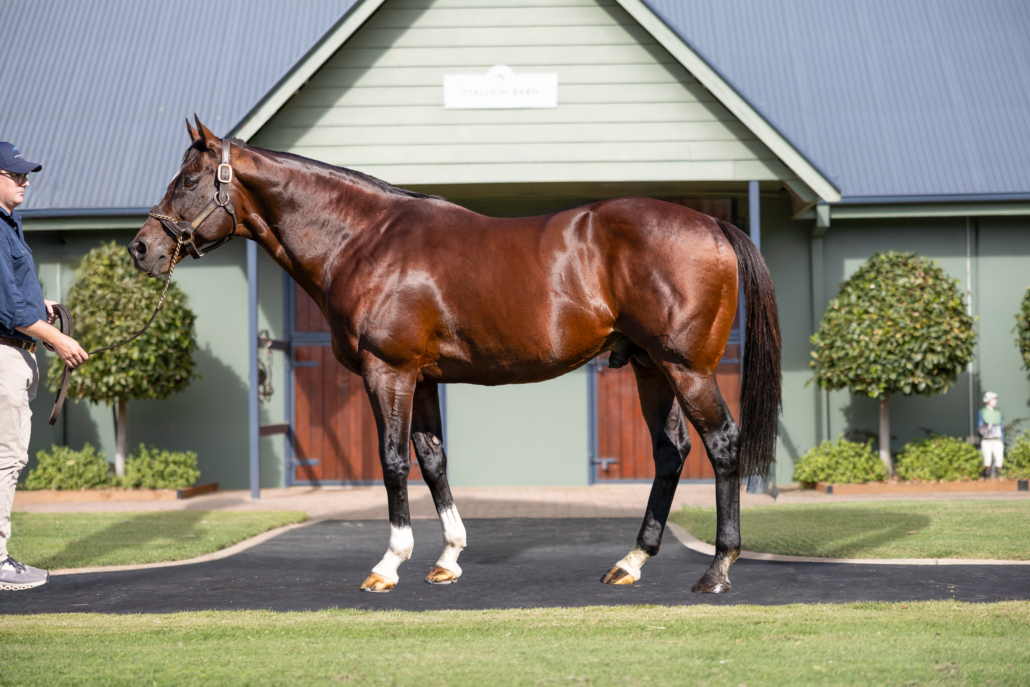
Toronado (Ire) | Standing at Swettenham Stud
Toronado has seven yearlings in the upcoming Inglis Classic Yearling Sale, the same sale that Little Paradise was sourced from. He is also represented by 38 yearlings at the Inglis Premier Yearling Sale, and a further 12 at Easter.
Little Paradise is the only runner to date, from four named foals, for Devil In Her Heart (Star Witness). Carramar Park will present Little Paradise’s half-brother by Farnan at the Inglis Easter Yearling Sale as Lot 268.
Devil In Her Heart is an unraced half-sister to three stakes winners being G2 Emancipation Stakes winner Olentia (Zoustar), Group 3 winner Wandabaa (Wandjina), dual Listed winner Malkovich (Choisir), and stakes placed Seewhatshebrings (Sebring).
Original Article: https://www.ttrausnz.com.au/edition/2026-02-03/hong-kong-review-classic-mile-winner-adds-fresh-momentum-to-toronados-sale-season
Swettenham Stud are thrilled to announce that Frankel’s exceptional Group 1 winner DIEGO VELAZQUEZ (IRE) will shuttle to their Nagambie operation, commencing in 2026.
Winner of the 1600m G1 Prix Jacques Le Marois, just like sensational sires Dubawi and Kingman, Diego Velazquez will be a welcome addition to the Victorian Stallion Ranks.
Breeders will have unique access to the only Group 1 winning son of Global Super sire Frankel standing in Australia.

Diego Velazquez is impeccably bred and is an extremely good-looking, 2.4 million guineas Tattersalls October purchase. The flashy son of 2yo Stakes winner Sweepstake was already the three-quarter-brother to G1 winner Broome and G2 winner Point Lonsdale before he stepped in the ring—and he would prove in time that he is better than both.
Named for famed Baroque painter Diego Velázquez, the colt previewed what he would become with a 4.8-length demolition over 1400 metres on debut in the August of his juvenile season, followed by claiming the G2 Juvenile Stakes at Leopardstown. At three, Diego Velazquez added the G3 Meld Stakes, by an astonishing seven lengths, and the G2 Solonaway Stakes to his resume.
“(Winning jockey) Ryan (Moore) said he’s got all the class and all the speed in the world,” O’Brien declared after his Solonaway victory.
This year, Diego Velazquez extended his record with the G2 Minstrel Stakes at The Curragh and defeated 4-time Group 1 winner Notable Speech (he won the G1 Breeders’ Cup Mile on Sunday) in the G1 Prix Jacques Le Marois, carrying the blue and green Sangster family silks to victory for new connections Sam Sangster Bloodstock.

“He is a fast son of Frankel,” Sam Sangster said after the race. “But you can see that, physically he’s all there, he’s all power and quite compact. Aidan said to me before the race that his trip is a mile, so we knew he had that little bit of stamina up his sleeve. But he’s quick, he’s genuine, he’s tough. He’s a beauty.”
“We always thought the world of Diego Velazquez,” said O’Brien. “He’s a very legitimate and desirable horse – he deserved to win his Group 1. He’s a great model, and is determined and very brave.”
In his Prix Jacques Le Marois victory, Diego Velazquez joined an elite honour roll alongside Dubawi, Kingman, and Palace Pier.
“He’s a horse who leaves little to the imagination,” said Sam Sangster. “He is the stamp of his father and a top-class racehorse to match. He’s done it at Group 2 level across three seasons and was Classic-placed, which gives him a rare depth of form and longevity. Topped off with a Group 1 success in the Prix Jacques Le Marois, one of Europe’s premier stallion-making races.”
Diego Velazquez will spend the first half of 2026 at the English National Stud, where Toronado also began his career, before heading south to Swettenham Stud for the Southern Hemisphere breeding season.
“Diego Velazquez ticks every box for British breeders,” said English National Stud CEO Anna Kerr upon the announcement. “(He has) the physical, the pedigree, and the performance. This horse will be given every chance to succeed.”
Swettenham Stud Principal Adam Sangster added, “As an industry, we have all been waiting for a fast son of Frankel to stand in Australia, and to purchase the most precocious son of his generation who won the stallion-making European mile was a stroke of genius from my brother Sam.
“The victory certainly helped facilitate standing Diego Velazquez in Australia for Sam and his partners, as we at Swettenham are very selective in who we stand so that breeders can have the greatest chance of a return on investment.”
“There is a tremendous sense of family pride working together with Sam to stand Diego Velazquez. We have already discussed the mares they’re supporting him with in the Northern Hemisphere, and we are incredibly excited about getting behind him with some quality mares in the Southern Hemisphere.”

A Group winner at two, three, and four, Diego Velazquez combines the greatness of his sire Frankel with the speed and precocity desired by the Australian market. He offers everything the Australian breeder could want; proven early talent, the ability to train on at the highest level, and the physique to reproduce the same types at stud.
A fee will be announced in due course for Diego Velazquez.
By Trevor Marshallsea
You mightn’t guess it from his pricetag, but Danehill Stakes (Gr 2, 1100m) winner McGaw (I Am Immortal) hails from a pedigree boasting plenty of blue blood, with strong notes of a particularly regal European family.
The first stakes winner created by an entity named Havaparty – the breeding wing (and nickname) of the like-sounding David Azzopardi of Dream Thoroughbreds – McGaw is the son of a mare Azzopardi bought for $16,000 in Niki Piki Milo (Librettist).
Danehill Stakes | Mcgaw
Mcgaw unravels a scorching sprint on the grandstand side of the straight, winning the Danehill Stakes in a photo finish 🔥
📺 Ch. 78/68, Foxtel 529, Kayo or via our app
REPLAYS: https://t.co/ZIa4a02wC0 pic.twitter.com/1IWxIjgDFs— Racing.com (@Racing) October 4, 2025
And even then the breeder couldn’t turn a profit when McGaw went to last year’s Inglis Premier Yearling Sale, selling from Stonehouse Thoroughbreds’ draft for $14,000 to trainers David and Emma-Lee Browne – which was $6,000 short of his reserve.
But the gelding’s pedigree suggested he’d have a good start in life.
Dream Thoroughbreds raced the sire, I Am Immortal (I Am Invincible), and when they sold him to Victoria’s Swettenham Stud, Azzopardi retained a small share and decided to enter into breeding.
At the Magic Millions National Broodmare Sale of 2020, Swettenham conducted research – via G1 Goldmine – into appropriate mares for I Am Immortal. Niki Piki Milo, a Listed winner in New Zealand, came up as a recommendation, and the mare is now responsible for one of that stallion’s two stakes winners.
We all want to repeat influential broodmares if we can, and catching the eye mostly in this mating is a 5f x 5f duplication of important mare Eljazzi (Artaius).
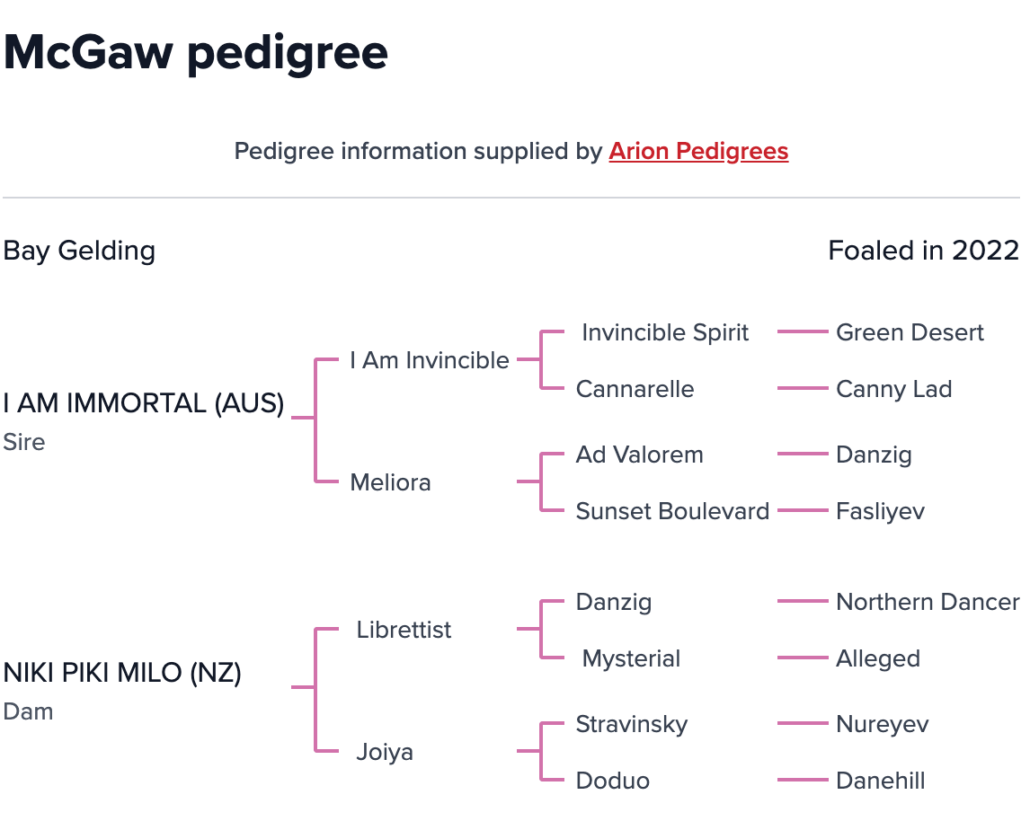
Irish-bred, Eljazzi was a foundation mare for the breeding empire of Saudi Arabia’s Prince Faisal bin Khaled bin Abdulaziz Al-Saud, he of the maroon with grey epaulettes carried with distinction by a host of quality thoroughbreds. They include dual Group 1 winners and subsequent sires Belardo (Lope De Vega), a former shuttler to New Zealand, and Make Believe (Makfi).
Most of all, they include Mishriff (Make Believe), who won three Group 1s and the world’s richest race, the Saudi Cup (1800m) in 2021, a year before it attained top-tier status.
The John Gosden-trained Mishriff himself is a product of the Eljazzi family, with that mare being his fourth dam.
Purchased by Prince Faisal in 1982 for 92,000gns, the Henry Cecil-trained Eljazzi won on debut at Leicester by four lengths. She couldn’t win again in three more starts, but became a runaway success at stud.
Her first named foal Rafha (Kris) won five from seven, four in black type, including Chantilly’s Prix de Diane (Gr 1, 2100m), or French Oaks, and was one of Eljazzi’s two stakes winners, alongside four stakes placegetters.
Rafha enjoyed outrageous success at stud. Four of her first nine runners were stakes winners, and three more were black-type placed.
Most notable among these were the Group 1-winning Invincible Spirit (Green Desert) and the Group 3-placed Kodiac (Danehill). They have of course gone on to be super sires, the former with 154 stakes winners, the latter 103.
Rafha also threw the great blue hen Massarra (Danehill), who in Ireland left no fewer than six stakes winners include elite victor Nayarra (Cape Cross) and the Group 1-placed Gustav Klimt (Galileo).
It’s via Invincible Spirit that Eljazzi comes into McGaw’s top-half, nice and strong since Invincible Spirit is McGaw’s third sire.
At the bottom, Eljazzi’s influence is even more powerful, undiluted as she’s McGaw’s fifth dam.
Eljazzi was imported to Australia in 2002, aged 22. That’s not why she feeds into McGaw, but she did become a success here as well.
She threw only two foals here before dying in 2005, but one was Al Anood (Danehill), dam of three stakes victors headed by dual Group 1 hero Pride Of Dubai (Street Cry), now the sire of 18 stakes winners topped by Bella Nipotina, Dubai Honour, and Pride Of Jenni.
While still in Ireland, Eljazzi threw McGaw’s fourth dam Fayfa (Slip Anchor), who was Listed-placed and also came to Australia to throw Listed winner Hillfa (Danehill) and her city-winning full-sister Doduo (Danehill), McGaw’s third dam.
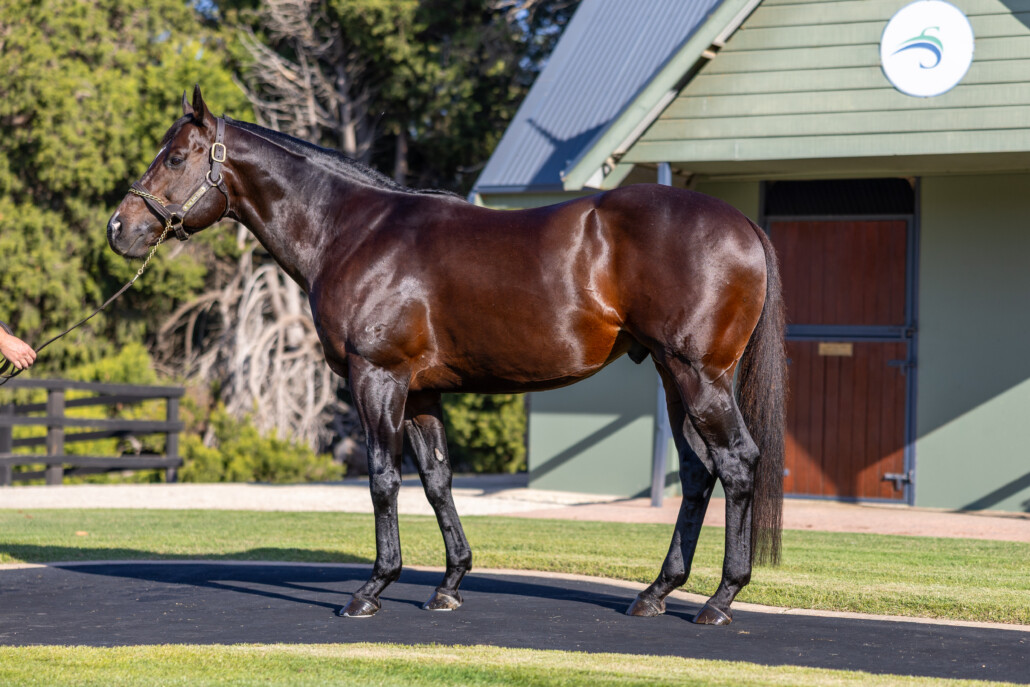
I Am Immortal
Doduo was a three-quarter sister to Massarra, Kodiac and Al Anood, and bore the dams of MRC Angus Armanasco Stakes (Gr 2, 1400m) winner Shuffle Dancer (I Am Invincible) and New Zealand Group 2 and Group 3 victor Contessa Vanessa (Bullbars) – who has renown as one of only three stakes winners by the obscure sire of Mr Brightside.
Dudou’s daughter Joiya (Stravinsky) was a city winner in New Zealand and bore Niki Piki Milo and three stakes placegetters, including the Group 1-placed Bella Gioia and Bella Mente.
Azzopardi put Niki Piki Milo to I Am Immortal for three straight years, yielding the Dream Thoroughbreds-retained I Am Piki, who’s won two from 11 so far, McGaw, and a filly bought at Premier this year by Trent Busuttin and Natalie Young.
Her price was $160,000, and Busuttin and Young’s fellow Kiwi expats David and Emma-Lee Browne were under-bidders, at $150,000. That’s a fair bit more than the $14,000 they’d paid for McGaw from Book 2 at the same sale a year earlier, hinting at the quality they’d seen from him.
McGaw had debuted by then, with a 3.5 length win in an 1100-metre Pakenham maiden. Two weeks after that sale, he followed with victory at start number two in the $1 million Vobis Showdown (1200m).
Second place went to Befuddle (Hanseatic). Raced by Dream Thoroughbreds, and co-bred by Azzopardi – who also has a small share in Rosemont Stud’s Hanseatic – she’s now a Group 3-placed city winner from five starts, further boosting the portfolio of her novice breeder.
“We’ve only been breeding for three seasons,” Azzopardi, who has six mares, tells It’s In The Blood.
“I couldn’t have imagined how much success we’d have so early in the breeding game. I wasn’t expecting it, and I’m not kidding myself – I still know how hard it’ll be to have more success – but to get that kind of success, it’s been a very exciting ride.
“To have bred the quinella in the Showdown was just wild. I wasn’t sure which one to cheer for.
“But McGaw has always shown ability from day one,” Azzopardi says of the three-year-old, now a $15 shot for the Coolmore Stud Stakes (Gr 1, 1200m) at Flemington on November 1.
“Watching him grow and fill into his frame has been great, and I think there’s a lot more to come. He’s still a bit of a long-legged baby, so as he matures further, he’ll keep improving.”
Azzopardi had budgeted for roughly double what he paid for Niki Piki Milo. She’d had just two runners, and one winner, from four foals at the time, but came up trumps on G1 Goldmine as a match for I Am Immortal.
“She was by Librettist, which probably wasn’t one of the most attractive of sirelines, but at $16,000 she was worth a gamble,” he said.
“As a yearling, McGaw was probably a bit big and leggy for a lot of buyers, and there wasn’t any real interest from anyone in him. But David and Emma-Lee, because they were New Zealanders, they knew Niki Piki Milo, and knew she was a good horse.
“We probably could have passed him in and raced him in Dream Thoroughbreds’ colours, but we wanted to get the stock of I Am Immortal into some good stables.”
I Am Immortal now has two stakes winners from 64 runners, at 3.1 per cent. That’s not bad among the six sons of I Am Invincible who’ve sired stakes winners so far – second behind Brazen Beau’s 4.6 per cent, and ahead of third-ranking Hellbent’s 2.4 per cent. For the record, the others are Kobayashi (1.8 per cent), Strasbourg (1.5 per cent) and Super One (0.9 per cent).
The other stakes winner for I Am Immortal is Phillip Stokes’s four-year-old gelding Athanatos. Out of an O’Reilly (Last Tycoon) mare, he’s shown stamina by winning Morphettville’s Chairman’s Stakes (Gr 3, 2000m), and is at $16 for Saturday’s Toorak Handicap (Gr 1, 1600m), as another of those sneaky lightweight chances in major Caulfield handicaps for jockey Craig Williams.
While the Eljazzi family runs vibrantly in McGaw, he’s also powered by Danzig (Northern Dancer), at 5m, 4m x 3m, 5m, through four distinct sons. In the top-half, Danzig comes through fourth sire Green Desert and I Am Immortal’s damsire Ad Valorem. Down south, he’s the sire of Librettist, and of third dam Doduo’s sire Danehill.
The influential Nureyev is repeated at 5m x 4m via I Am Immortal’s second damsire Fasliyev, and Niki Piki Milo’s damsire Stravinsky.
Like Eljazzi, American broodmare Special (Forli) is another mare worth noting, at 6m, 8f x 5m, the first and last via Nureyev, and the middle through Sadler’s Wells (Northern Dancer), I Am Immortal’s fourth damsire.
Natalma (Native Dancer) makes a strong nine appearances from the fifth to the eighth removes, with another great American mare Lalun (Djeddah) reinforcing the whole five times at 8m, 8m, 8m, 9m x 9m via Never Bend (four times) and Bold Reason.
The dominant sire is Hyperion (Gainsborough) with 19 mentions from columns seven through nine, ahead of 16 from Native Dancer (Polynesian), at six through nine.
***
Godolphin’s two stakes winners from Saturday come powered by some reliable pedigree tricks, one with a particularly royal blue hue.
The Joe Pride-trained three-year-old colt Attica (Lonhro), winner of Randwick’s Dulcify Stakes (Listed, 1600m), is the first foal of former outstanding Godolphin mare Savatiano (Street Cry).
Now 11, Savatiano won 12 times from 14 starts, with seven stakes wins including five Group 2s. She didn’t quite finish with an elite success, but was placed three times at the top level, including a 0.1-length second in the 2021 All Aged Stakes (Gr 1, 1400m), and a 1.3-length second in the 2020 Canterbury Stakes (Gr 1, 1300m).
Exacerbating that pain, she was first across the line in the 2021 Canterbury Stakes, but was disqualified 12 months later – affecting connections but not punters – for a mysterious, unexplained positive swab to three banned steroidal substances.
Savatiano now has a two-year-old colt named Sabates (Palace Pier) in Ciaron Maher’s stable, and a yearling colt by I Am Invincible.
Attica is also boosted by that ever-reliable staple of pedigrees, a duplication of Mr. Prospector (Raise A Native) at 4m x 4m, coming in strong as the sire of Lonhro’s damsire, and as Savatiano’s third sire.
Godolphin’s winner of Saturday’s Super Impose Stakes (Listed, 1800m) at Flemington – the Team McEvoy-trained Options (Impending) – boasts that much coveted occurrence of having Northern Dancer full-brothers Fairy King and Sadler’s Wells on either side of the pedigree, and close enough in the fourth remove.
Fairy King is there as the sire of Impending’s damsire Encosta De Lago, while Sadler’s Wells is well placed as the third sire of Options’ mother Alternatively (New Approach).
Options also has a doubling of Mr. Prospector, at 5m x 5m.
Original Article: https://www.anzbloodstocknews.com/mcgaw/
Find Us:
Join our mailing list
Address:
Swettenham Stud
2114 Northwood Rd
NAGAMBIE, 3608
Victoria, Australia
P | +61 3 5794 2044
E | office@swettenham.com.au



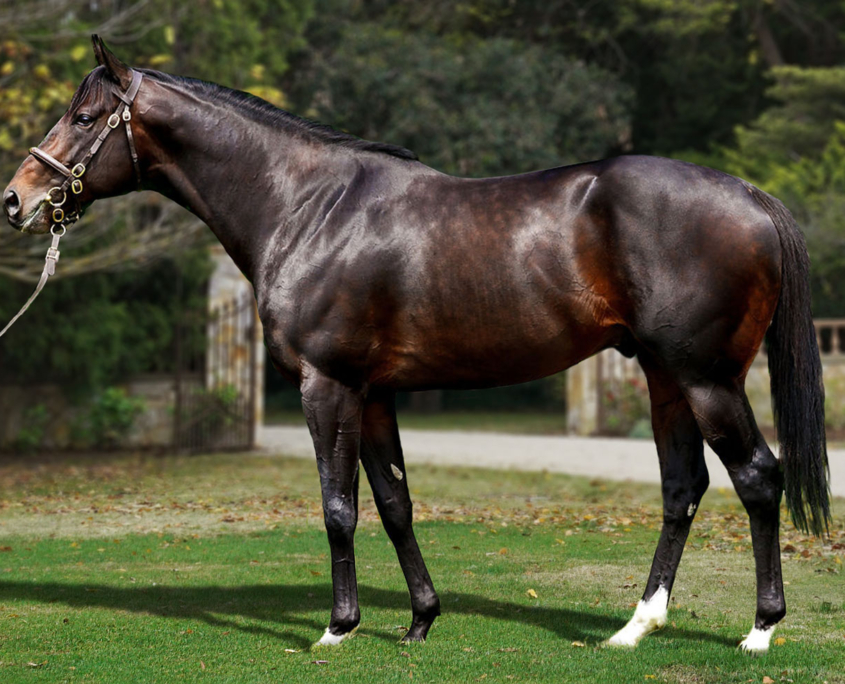
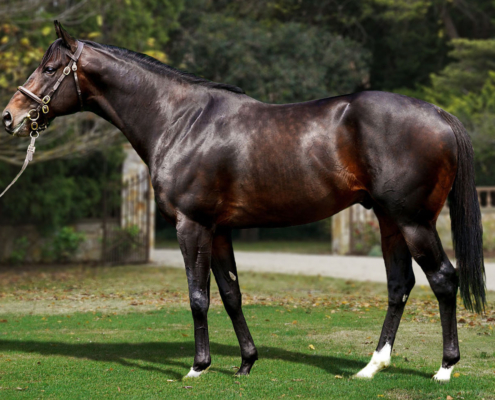




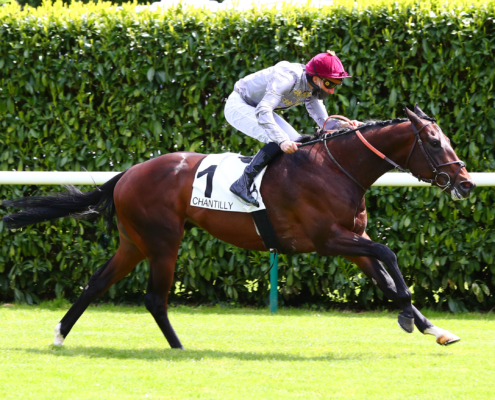
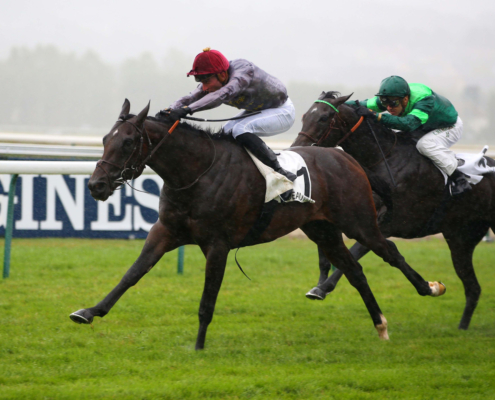
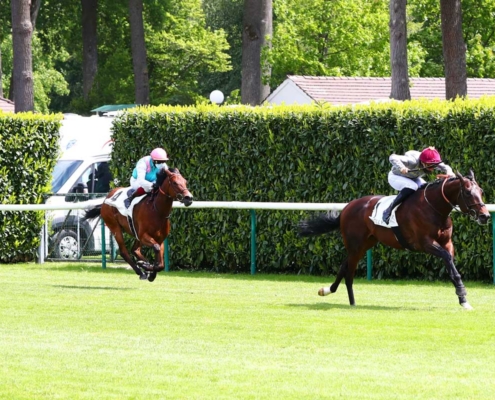
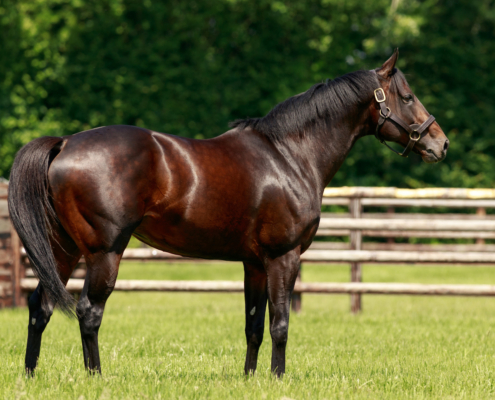
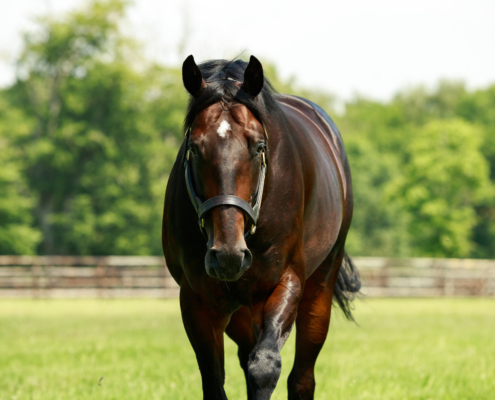
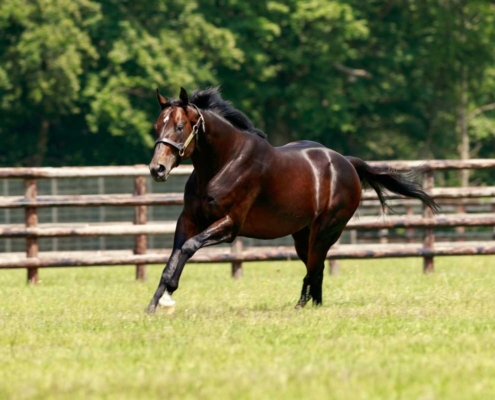
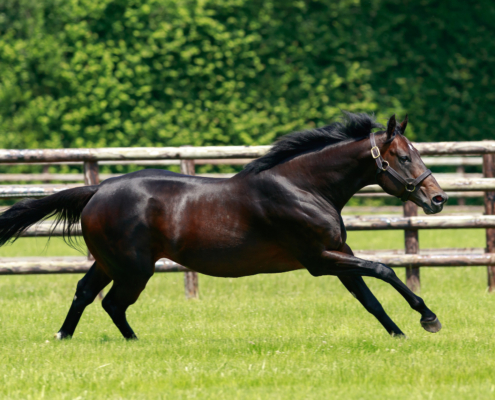
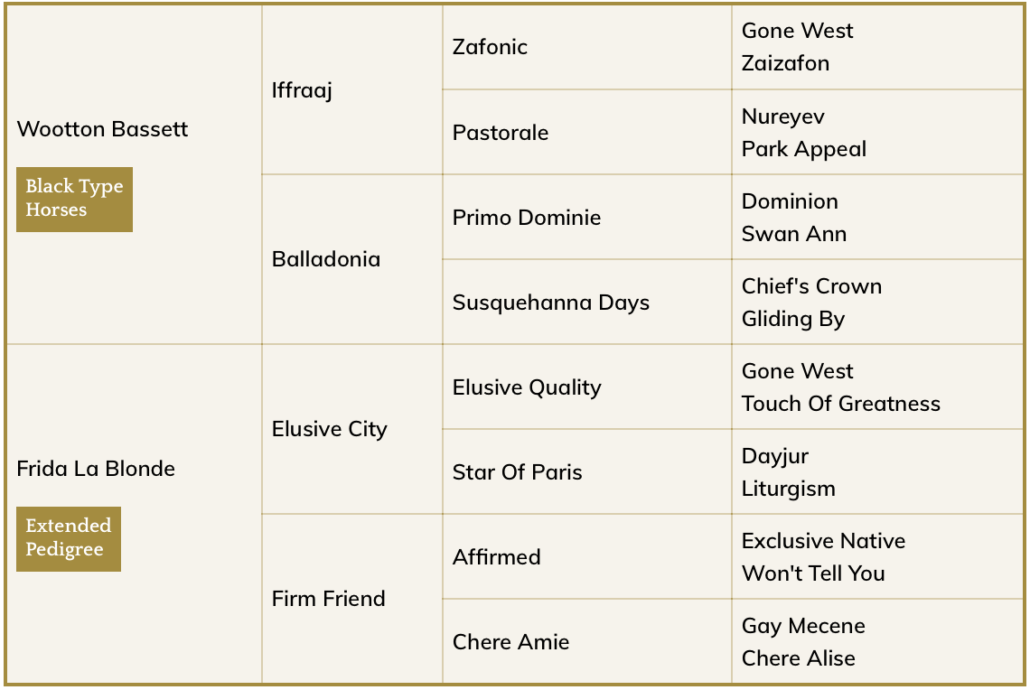
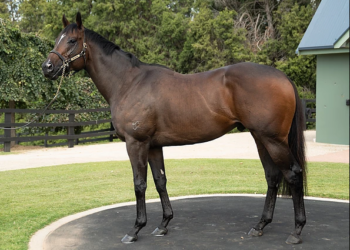
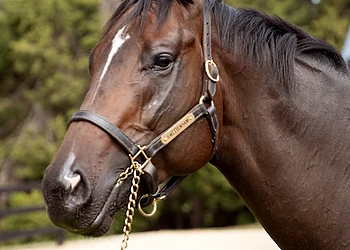
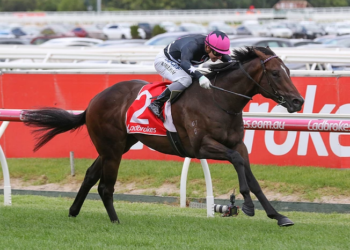
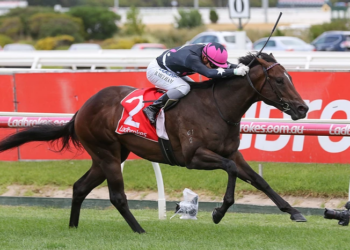
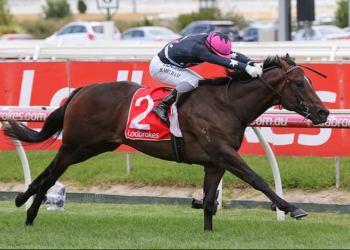
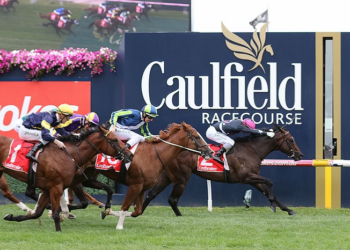
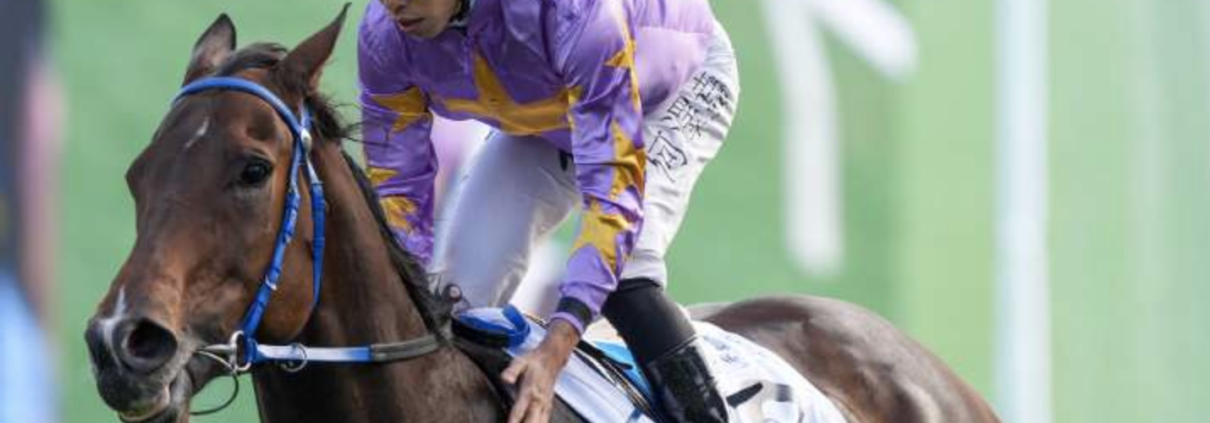

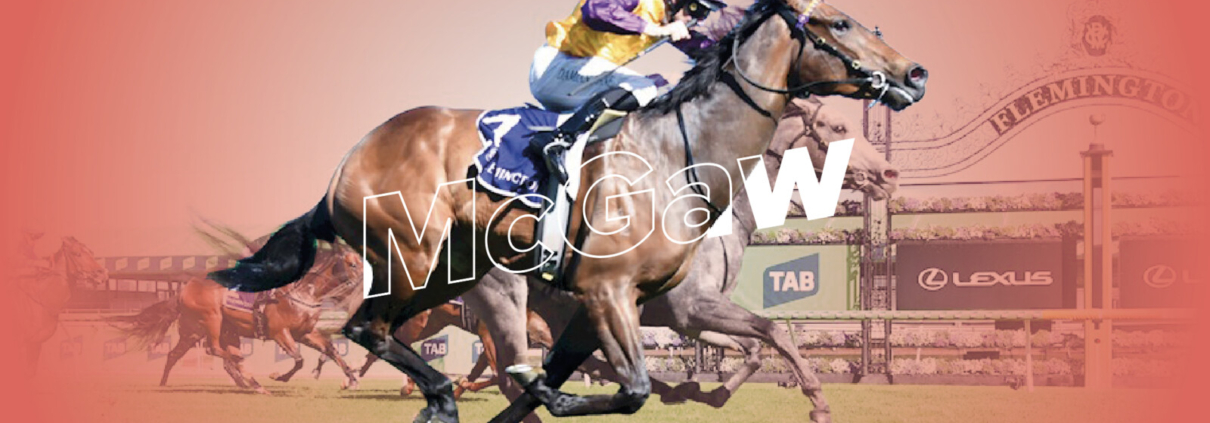
Resolute Racing’s Woodshauna gives Al Shaqab’s Wooded a first Group 1 winner
Woodshauna provided his sire Wooded with a first Group 1 winner when springing a surprise in the Prix Jean Prat at Deauville. The Francis Graffard-trained three-year-old was carrying the colours of John Stewart’s Resolute Racing for the first time, with the operation having bought the colt for £625,000 from Al Shaqab at last month’s Goffs […]